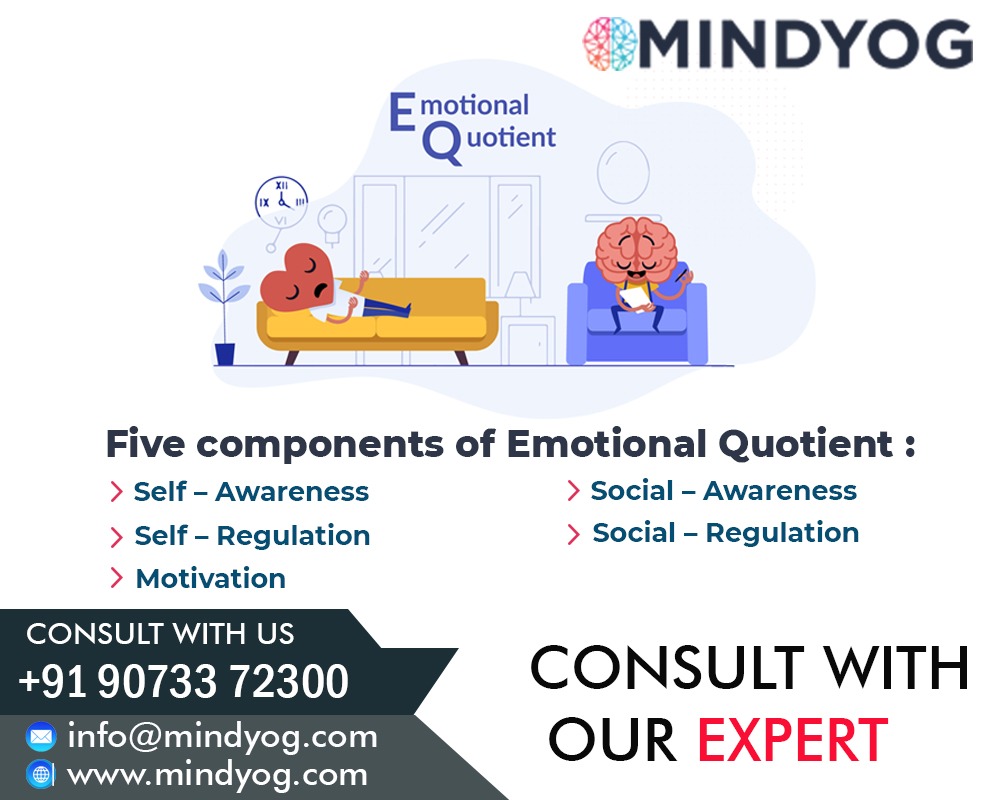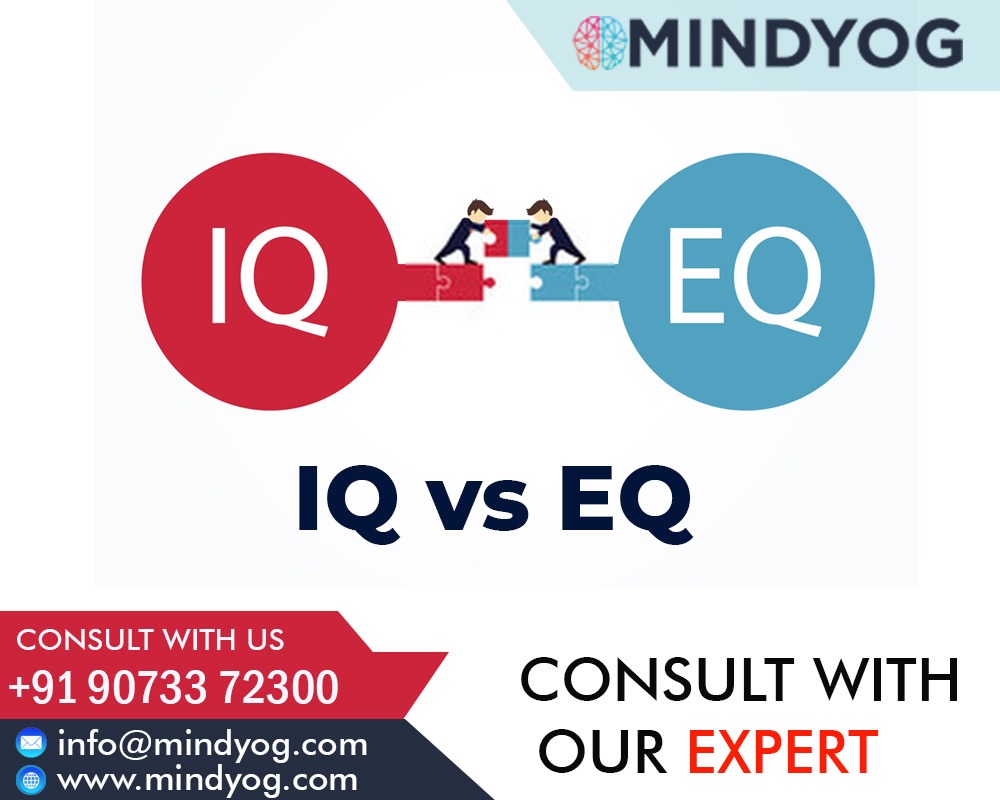What do you perceive as more important in shaping life success? Lots of parents think that in spite of being smarter with good grades and high intellectual functioning, why our kids failed to show appropriate emotions according to the situation. They tend to show increased aggression and impulsive behaviour, aloofness, rigid. During child counselling session we come across many of these same questions, ending with how to deal with these changes.
As an adult we experience many emotions and when feelings run strong, people often do and say things they wouldn’t usually do. This is what a young child would do all the time. Often raising an intelligent kid is a big task for today’s parents, most parents are focused on improvising their child’s IQ (intelligent quotient), which measures mental abilities like abstract thinking, reasoning, introducing or understanding new ideas, problem solving. But simply having good grades doesn’t stand for his overall intelligence. Mental health experts assesses a person’s EQ (emotional quotient) which define as ability to understand and manage emotions and use them in a positive ways to relieve stress, effective communications, empathizing with others and removing conflicts in a best approach. In school what matters most is IQ but when you get enter in an organization, how you grow is more down to EQ, Lyons.
One such Corporate Wellness Program in Kolkata discussed about how leaders of corporate world needs to know about their emotional quotient and necessity to develop self awareness, social awareness and relationship management skills in order to get the best outcome from themselves and their team members. If there is lack of emotional intelligence in work place it would lead to strained communication and that could make employees disengaged or disenchanted then ultimately losing their ability and motivation to think and create effectively.
Author and Psychologist Daniel Goleman suggested the importance of EQ more than IQ in his bestselling book Emotional Intelligence in mid 1990s. He is one of the first people to raise awareness of EQ. According to him, IQ comprises only 20% of the factors that influence life success, on the other hand EQ, temperament, wealth, family background and luck make up the balance. This states that cognitive skills such as verbal comprehension, reasoning and processing, memory will help the person academically but to get the best out of him IQ traits should be balanced with social – emotional skills as impulse control, coping mechanism, motivation and perseverance. EQ is centered on abilities such as –
- Identifying emotions
- Evaluating others feelings
- Managing one’s own emotions
- Perceiving how others feel
- Using emotions to ease social communication
- Relating to others

Five components of Emotional Quotient :
Emotional Quotient consists of our internal and external behaviour. How we think about ourselves and how we act towards others.
- Self – awareness: is the ability to be aware of ourselves as an individual or of our own being, actions and thoughts.
- Self – regulation: is the ability to regulate one’s own behaviour without external control or monitoring.
- Motivation: is a passion to work toward a desired goal, the reason for the action that gives purpose and direction to behaviour.
- Social – awareness: is the ability to understand the emotional mindset of other person as how your words and actions might affect others.
- Social – regulation: is the ability to influence others emotional clarity by managing relationships and building networks.
Can we teach EQ?
The question we get is, “Can EQ be learned?” or is it innate like our blood type or eye color, are we simply born with the natural ability to control or manage our emotions? Research studies suggested that EQ can be taught and improved. There are certain aspects that children are born with but other components are acquired. In Child counselling service in Kolkata, psychologist focuses on educating social skills and emotional literacy, how to name and manage feelings and learning to respond to others emotions appropriately. We are focused in shaping our young children in a traditional curriculum goal rather we should teach how to be empathetic towards others, especially in the early grades.
Psychological counsellor uses story time as an important way to inculcate positive feelings in child, including picture books, role – playing with dolls, modelling, and verbal storytelling and letting them read on their own. It helps them to understand a situation and learn how to manage events and emotions.
This may sound like general techniques to calm down or engage the child but for child to focus and behave, it is important to master these concepts. Further concept of social responsibility added according to the grade of a child. Here the child is taught to be a good community member.
Parents can also help their child by engaging them in social activities and giving them the chance or exposure to speak up their mind and not to be reserved. They should be exposed to develop their social skills in an emotionally rich environment. All of these techniques are a part of emotional intelligence. If we expect our child to be focused on academic achievement we usually ignore emotional self – regulation which is a poor strategy, research suggests that emotional intelligence is twice as strong a predictor as IQ of life success.
Here is a situation, if you are in a psychiatric counselling session getting a check-up or nervously waiting for your test results and the doctor didn’t empathize with you or probably did very little to put your mind at ease. After the appointment you may be relieved with your test results but unsettled by the interaction. But in reality this is not the case though, there are people in all occupations and life who demonstrates greater IQ than EQ. Similarly, there are also plenty of people who tend to apply EQ more in their walks of life.
Only one component doesn’t make life successful. Both IQ and EQ play their significant roles in overall success, as well as physical and mental health, wellness and happiness. The consequence should be a benefit in learning to improve skills in multiple areas such as acquiring and improving social and emotional skills simultaneously strengthening cognitive abilities.
One of the ultimate needs of any child or adult is to have a peaceful and balanced mind. If you need any psychological help contact at MindYog, we work in the direction of modifying your negative thoughts into positive ones and guiding you to lead a happy life.
Mindyog
Address: Signet Tower, 9th Floor, DN-2, DN Block, Sector V, Bidhannagar, Kolkata, West Bengal 700091
Phone: 090733 72300

